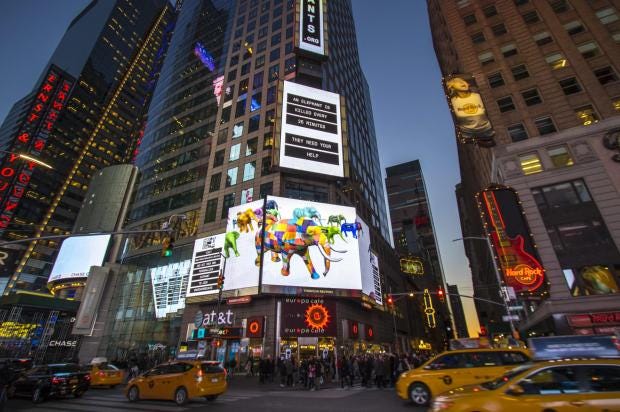
The article references the cult neo-noir classic Blade Runner in terms of giving it's global audience an insight into a not too distant future. The article states the film became "remarkably prescient about the world of advertising" as the film had pre-internet visions of digital content and moving-image billboards. The articles main focus on DOOH.com and how digital advertising is at the forefront for companies.
- “Blade Runner was the film that made me want to work in digital advertising. I knew that what I was watching wasn’t sci-fi, it was the future.” - Andew Pillips, CEO of DOOH.com (digital out of home)
- Founded in 2013, Phipps Newman’s company DOOH.com now stands at the forefront of the industry. It specialises in interactive, live, dynamic and real time content on digital screens
- ‘right time, right place’ digital big-screen advertising has made it every brand’s priority - or top of the wishlist if budgets don’t allow.
- “With real-time, relevant and reactive advertising B&Q can contextually serve the right promotion based on weather, location, stock levels - and even direct shoppers to the nearest store alongside it’s opening hours,” - Phillips
- "The possibilities for such dynamic advertising are enormous.” -Phillips
- In an era when even those who work at newspapers admit print is dead, advertisers are increasingly turning to digital screens.
The article makes it evident that the company is not all about boosting money but DOOH.com used the power of technology by working with the deodorant brand Lynx and mental health charity CALM (Campaign Against Living Miserably) which works to prevent male suicides.
The advert was to put a spotlight on suicides as male suicides was at 45% by creating a #BiggerIssues to create awareness.
Last year, there was the March for Giants campaign in collaboration with creative agency 18 Feet & Risisng for awareness of elephants poaching crisis and fundraiser for conservation charity Space giants. They created the world's first moving heard of elephants to 'march' globally across advertising screens from Hong Kong, New York and London, which is he use of user generated content . More than 3,000 took part by creating their own personalised elephants and seeing their own personalised animal marching through each city.
We know that mass-awareness campaigns such as this do not gain money but because of the 'wow' factor from the big screens, consumers and brands both recognised the value exchange from it though donators didn't see their elephant in person.
We see the power of technology within this company, and how advertisesrs are slowly turning to digital advertising than those of he print industry. The article itself makes it evident that the print industry is a dying medium and those who wanted to advertise before on newspapers having taken or want to take on the large bright 'wow' factor of Blade runner moving billboards to sheocase their boraducts and from the orphans vampaign we can see that even revenue is ganaibel from such things
No comments:
Post a Comment